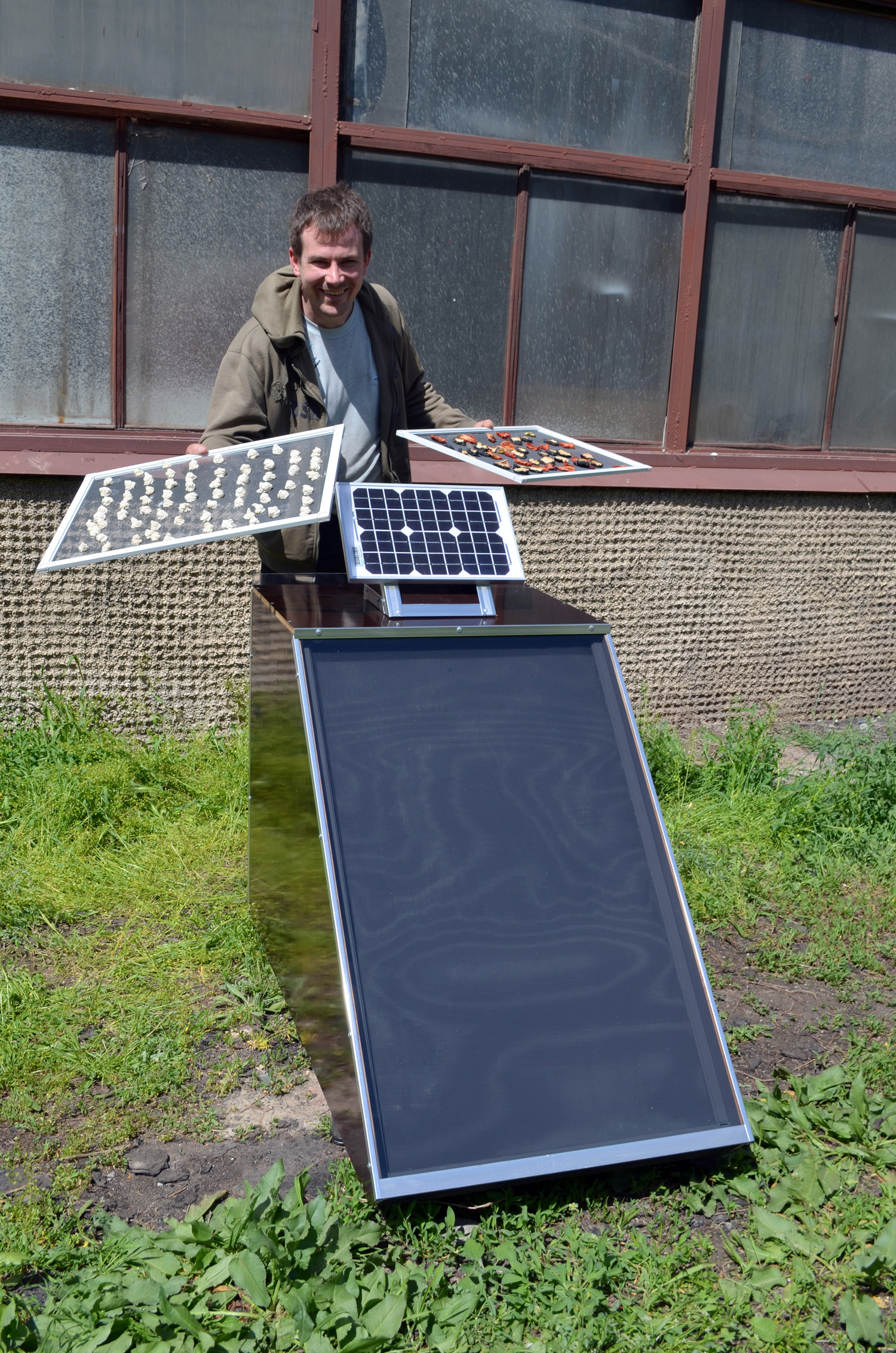January 23, 2018
By July 2017 export of fresh and dried fruits and nuts from Kyrgyzstan has increased by factor of 2.1 in comparison with 2016. If this number is to increase, Kyrgyz farmers would have to find ways to grow and dry their produce more efficiently, and to ensure high quality standards, while still offering competitive prices.
Solar drying is one of the options for the country, striving to become a prosperous green economy. To see, whether solar drying was an efficient method to be implemented across the country for prevention of post-harvest losses and preservation of food surplus, AUCA researchers with the support from USAID Building the Future grant, have compared several models of small-scale solar driers to results of traditional open sun and shade drying of kurut (form of traditional dried cheese), as an example of local food product that requires drying.
Kurut is a nomad hard cheese, produced as a means to preserve nutritional value of horse, cow, and buffalo milk, and increasingly used as a tourist product. It is made from condensed salted sour milk, suzmo, which is then formed into small balls or other shapes and is dried in the open air for 5-7 days or in special driers, which can also be used to dry fruits, vegetables and herbs, fish and meat.
One of tested designs of a drier - an indirect forced circulation drier, fully powered by the sun through photovoltaic panel - has demonstrated better drying efficiency and produced better quality of dried products.
This design can be recommended to small farmers and shepherds that have excess produce of fruit and vegetables, and milk in summer and autumn, and face malnutrition during winter and spring.
On a local level, nutritional value, saved through solar drying should be able to prevent malnourishment, observed in 18% of Kyrgyzstan’s children less than 5 years old are which on average get only 2/3 of needed nutrients and calories. This should lead to better growth and intellectual development, lower mortality rates and chronic heart diseases, cancers, diabetes and anemia in later life.
Drying and selling of the otherwise lost excess produce should bring additional income to rural families, improving their livelihood from the economic point of view.
“I am grateful to USAID for the opportunity for thorough testing of the solar driers before actually offering them to consumers,”- said Tatiana Vedeneva, the president of the Center for Renewable Energy and Energy Efficiency Development (CREEED), - “We have adapted several solar drier designs within the scope of other projects, but never had the opportunity for thorough resting of the driers before AUCA has implemented this research program. Moreover, based on the results of the study, we have added a backup electricity heating option for bad weather and night-time drying”.
Such collaboration between academia and producers of sustainable energy solutions is a great example of practical value of academic research that has a direct effect on product design.
Most importantly, the results of the study can be used to demonstrate that renewable energy can be an effective part of agricultural production chain.
Solar driers of the recommended design are now produced by CREEED and are marketed at 275 USD to gardeners and small farmers. Payback of the drier is less than one drying season, which is extended from May to October with the help of the drier.

Aleksei Gusarov, CREEED team member, demonstrating kurut and tomatoes, dried in solar drier
“I want to use it to save space and prevent insects and birds from eating my plums and apples. In winter I will make compote and pies for my grandchildren,” – said Kurmankojoeva Nazgul, the first buyer of the developed solar drier from Ananjevo village in Issyk-Kul province of Kyrgyz Republic.
USAID Building the Future Project implemented by the American University of Central Asia helps to improve the quality of university-based research, results of which should be used for evidence-based policy development and implementation in the Kyrgyz Republic